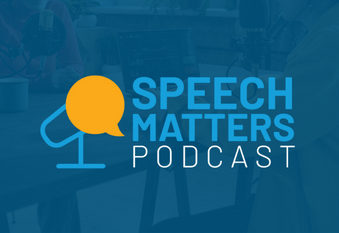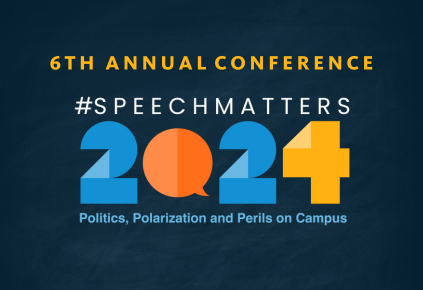Ask the Experts
Best Practices for Incorporating Civic Learning
PUBLISHED MARCH 14, 2024
In honor of Civic Learning Week, how can institutions of higher education better incorporate civic learning into their curriculums and campuses to ensure we are educating a new generation of civic leaders who trust and actively participate in our democracy?
About Civic Learning Week
Civic Learning Week (CLW) is hosted annually by iCivics and seeks to highlight the importance of civic education in sustaining and strengthening constitutional democracy in the United States. By highlighting the civic knowledge, skills, and dispositions that provide the foundation for an informed and engaged populace, CLW seeks to further energize the movement to prioritize civic education across the nation.

Jennifer Domagal-Goldman, Executive Director, ALL IN Campus Democracy Challenge at Civic Nation
At ALL IN, we believe that civic learning is an essential pillar of higher education’s mission to prepare students for participation in their communities and our democracy. Many young voters feel unqualified to participate in our democracy because of a lack of access to voting and election information, but we also know that higher education institutions are trusted messengers in encouraging youth to engage with the electoral process.
The ALL IN Campus Democracy Challenge provides participating campuses with avenues to increase nonpartisan student democratic learning and engagement — including reviewing their action plans detailing how the institution will bolster a culture that supports curricular and co-curricular involvement in the electoral process. This year, ALL IN recognized 93 institutions with our 2024 Highly Established Action Plan Seal.
Higher education institutions can tailor action plans to meet the needs and goals of their campuses. At the University of North Carolina Greensboro, their plan includes supporting four student “Democracy Fellows” to assist with voter registration drives and lead Voter 101 workshops. ALL IN also partners with institutions at the state level, and in January launched the Vermont Campus Voting Challenge — a partnership with the Vermont Secretary of State’s office to celebrate institutions fulfilling their respective nonpartisan democratic engagement action plans.
Embedding civic learning opportunities across the curriculum, and in co-curricular activities, ensures that students gain the knowledge, skills, and experiences necessary to bring their specific voices and talents to bear in our democracy — through their professions, activities, and decisions at the ballot box.

Fiona Lu, Co-Founder/Co-Executive Director, What We All Deserve
As a youth leader who has been in the state policy advocacy space since I was 16, working alongside older adults and mid- to late-career professionals on youth-proposed bills, the most meaningful ability you can give to young people is agency. By informing young people about their potential for self-determination in civic processes, older generations are able to capacity-build for the same expansive, multi-generation causes that they are fighting for. Supporting young people by doing something even as simple as giving thirty minutes of your time to give advice or mentorship to a student-led project is an investment in building the skills in young people to navigate institutions for change at an early age.
College and university campuses that hope to tap more into building youth agency should be directly reaching out to their students, especially undergraduates. University staff, professors, and researchers can directly provide their support and insights to students by creating more opportunities for them to share about their work and collaborate together. It’s baffling that there are undergraduate students on college campuses directly pitching state legislation who share the same space as some of the most powerful, innovative research hubs for public policy – yet the two have no connection. Bridging this gap is key to building institutional knowledge and power in young people, with the support and backing of older advocates and scholars. After all, you would be surprised how much young people have to say and teach other folks once you give us the platform.

Viviana Marsano, Ph.D., Director, Civic and Community Engagement, UC Santa Barbara
Higher education plays a crucial role in infusing civic learning, both inside and outside of the classroom. Registering students to vote when they first get to our campuses, educating them on the national, state, and local issues on the ballot, and getting them to the polls is the first civic action we should foster when students arrive on our campuses.
But where do we go from there? Civic learning should include an understanding of democratic values, skills to engage with a diversity of perspectives and people, leadership development, abilities for deliberative and constructive discourse, and commitment to collective problem solving around public issues despite our differences. In addition, our institutions of higher education must create environments where this civic learning can be rehearsed and tested.
Civic learning occurs beyond books and the classroom and should be honed through hands-on active engagement. To this end, colleges and universities should expand robust partnerships with local school districts, government agencies, non-profits, and community organizations. Some activities that come to mind to inspire our students include attending a meeting of the county supervisors or local city council and participating in public comment, becoming a board member in a local non-profit, founding a new student organization that addresses campus issues they are passionate about, or developing a civic learning curriculum in a local high school. These opportunities to contribute to their communities and apply their acquired knowledge, values, skills, and collective action (pillars of civic learning and engagement) will help shape our next generation of civic leaders.

Kelly Siegel-Stechler, Ph.D., Senior Researcher, CIRCLE, Tufts University
Civic learning is happening all the time, whether we are paying attention or not. Rather than trying to implement the perfect core course requirement or design a curriculum that attempts to tackle the issue, colleges and universities should think broadly and holistically about the democratic culture and environment they foster and how they are socializing students to interact with institutions and authority.
How are democratic ideals reflected in the structure and governance of the institution and its policies? What avenues do students have to use their voices and advocate for change? And when they do, how are their efforts received by faculty, staff, and administrators? Especially (but not exclusively) at public institutions, those experiences will set a precedent about what to expect from institutional and civic engagement throughout their lives. If colleges and universities want to ensure a robust and inclusive democracy, they must model a democratic culture on their own campuses.

Rajiv Vinnakota, President, Institute for Citizens and Scholars
The value of higher education rests fundamentally on the practice of hearing, appreciating, and engaging with people and perspectives that vary widely. College campuses intentionally stand as some of the most diverse spaces in our nation, embodying this commitment to inclusivity. Rooted in the pursuit of knowledge for societal advancement, these institutions thrive when they provide ample opportunities for civil discourse and the exchange of ideas.
On a broader scale, the integration of constitutional democracy principles into education is paramount, and college presidents play a vital role in this endeavor. That’s why the Institute for Citizens & Scholars, under my presidency, has initiated College Presidents for Civic Preparedness. This endeavor is crafted by, with, and for presidents deeply committed to equipping today’s youth for active citizenship in our democracy.
Participating presidents uphold three core civic commitments: (i) educating for democracy is central to our mission; (ii) we will prepare our students for a vibrant, diverse, and contentious society; and (iii) we will protect and defend free inquiry. Together, these leaders ensure that civic readiness and democratic commitment are at the core of both academic endeavors and campus life. Through collaboration, they exchange insights, adopt best practices, and align efforts to prepare the next generation of civically well-informed, productively engaged, and committed citizens.
Whether through initiatives like College Presidents for Civic Preparedness or other networks, college leaders must engage in collective action and advocacy to fortify democracy on our campuses across the nation.


